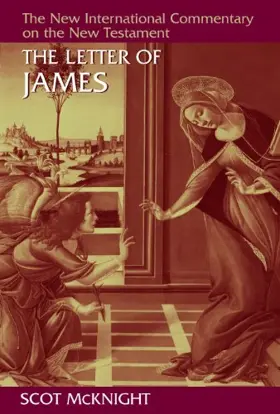

The Letter of James
in New International Commentary on the New Testament
Pages
536
Publisher
Eerdmans
Published
2/15/2011
ISBN-13
9780802826275
Scot McKnight here explains the Letter of James both in its own context and as it may be seen in light of ancient Judaism, the Graeco-Roman world, and emerging earliest Christianity.
From beginning to end, the book is shaped for pastors, teachers, and scholars. McKnight is less interested in shedding new light on James than on providing a commentary for those who want to explain the letter and its significance to congregations and classes.
This commentary is accessible to a broad readership, at once full of insight and of good sense and wit that makes for good reading. The Letter of James is an especially helpful source for consultation as to what James is about.
From beginning to end, the book is shaped for pastors, teachers, and scholars. McKnight is less interested in shedding new light on James than on providing a commentary for those who want to explain the letter and its significance to congregations and classes.
This commentary is accessible to a broad readership, at once full of insight and of good sense and wit that makes for good reading. The Letter of James is an especially helpful source for consultation as to what James is about.
Collections
This book appears in the following featured collections.
- Basic Library Booklist by Detroit Baptist Theological Seminary
- New Testament Commentaries & Monographs by Princeton Theological Seminary
- Nijay Gupta's Top NT Commentaries by Nijay K. Gupta
- Recommended New Testament Commentaries for Evangelical Pastors by Thomas R. Schreiner
Reviews
When preparing to preach through James I purchased this commentary from a scholar I respect and trust. He did not disappoint. McKnight brings a fresh approach to James, which, I believe should help revive James from the dustbin of protestant attention. Given the heavily pauline focused nature of so much protestant thought, and James' appearance of tension with Paul meant James' significance was downplayed. What McKnight has done in reading James on James own terms first, then in relation to the rest of the NT, is provide a new sense of relevance for this much ignored epistle. It has a robust, and fiery pastoral tone, and demonstrates a deep passion for faith lived out according the dual command of love God and love your neighbour. This renewed focus on James as commenting on Jesus teaching makes James incredibly valuable for discipleship and community building in the church. I am incredibly thankful for this volume. It became my first choice, slightly edging out Johnson (no easy task). This should (and I think will) become the evangelical standard for James commentaries.
Scot McKnight is an unusual in that he is a respected biblical scholar yet is able to write with a pastor’s heart on topics which speak to important contemporary issues. McKnight’s commentary is another excellent contribution to the NICNT series, replacing James Adamson’s 1976 volume. While Adamson is still a useful commentary, McKnight’s contribution goes far beyond what the NICNT series expected thirty-five years ago. After a brief introduction (55 pages, defending a generally traditional view of the letter), the commentary proceeds phrase by phrase, Greek appears in transliteration, but in footnotes it is not. Most of these notes are lexical or textual. McKnight fully develops the wisdom-aspect of the letter of James, occasionally citing at length parallels to Jewish wisdom drawn from the Hebrew Bible, especially Proverbs but also Sirach. He has a short excursus on Paul and James, concluding that James is responding to Paul (or some of Paul’s early followers who distorted Paul’s teaching). As with most of McKnight’s work, this is a very readable commentary. While readers familiar only with The Jesus Creed will find McKnight’s scholarship taxing, this commentary will be the “first off the shelf” for many years to come.
[Full Review]

